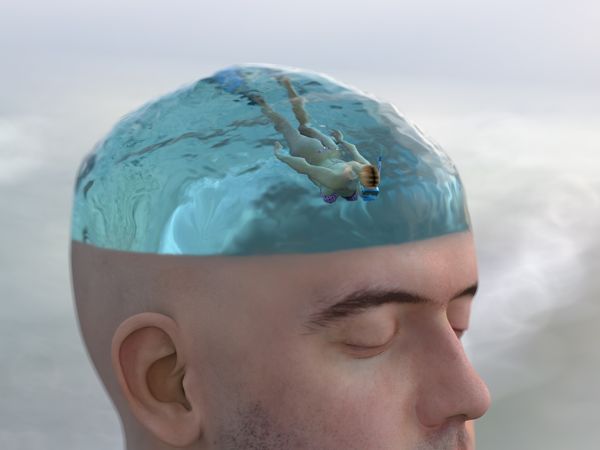Enchiridion Chapter 14 / 53
In today’s post, Epictetus has us reevaluate our desires in life so that we don’t set ourselves up to fail.
There are two types of desires that Epictetus warns us against below.
The first is what I call “Impossible Desires”—this type of desire stems from an unrealistic expectation about reality that inevitably leads to disappointment.
The second type is what I call “Slave Desires”—here, the outcome of the desire is not up to you, and so you unknowingly enslave to something outside yourself.
Note: Epictetus’ short chapter on accepting events as they are is great supplemental reading.
I/ Impossible Desires
You are foolish if you want things that are impossible to attain.
For example, many of us wish our children, partners, friends, and parents would live forever.
We desire this with passion.
But of course, this is an impossible desire—you are not able to make people live forever.
You don’t have those superpowers, and even if you did, such decisions are beyond you to make.
Keep this example in mind with areas of your life that seem more trivial too.
It is naive, for example, to expect your partner never to flirt with others, or your friends to never gossip about you, or people not commit crimes.
Such ideals require poor behaviour to turn into something else and human nature to fundamentally change.
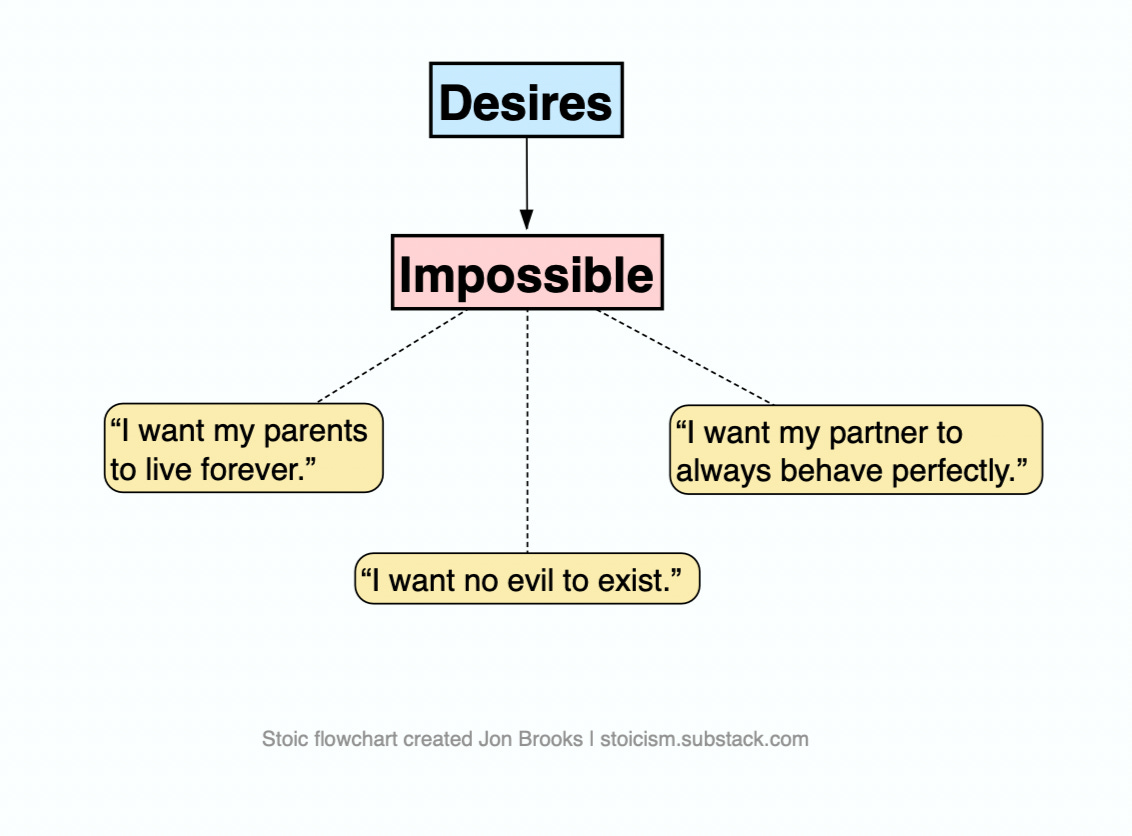
Instead, what you can do is avoid becoming disappointed by your impossible desires and cease to have them.
That is something that you have the power to control.
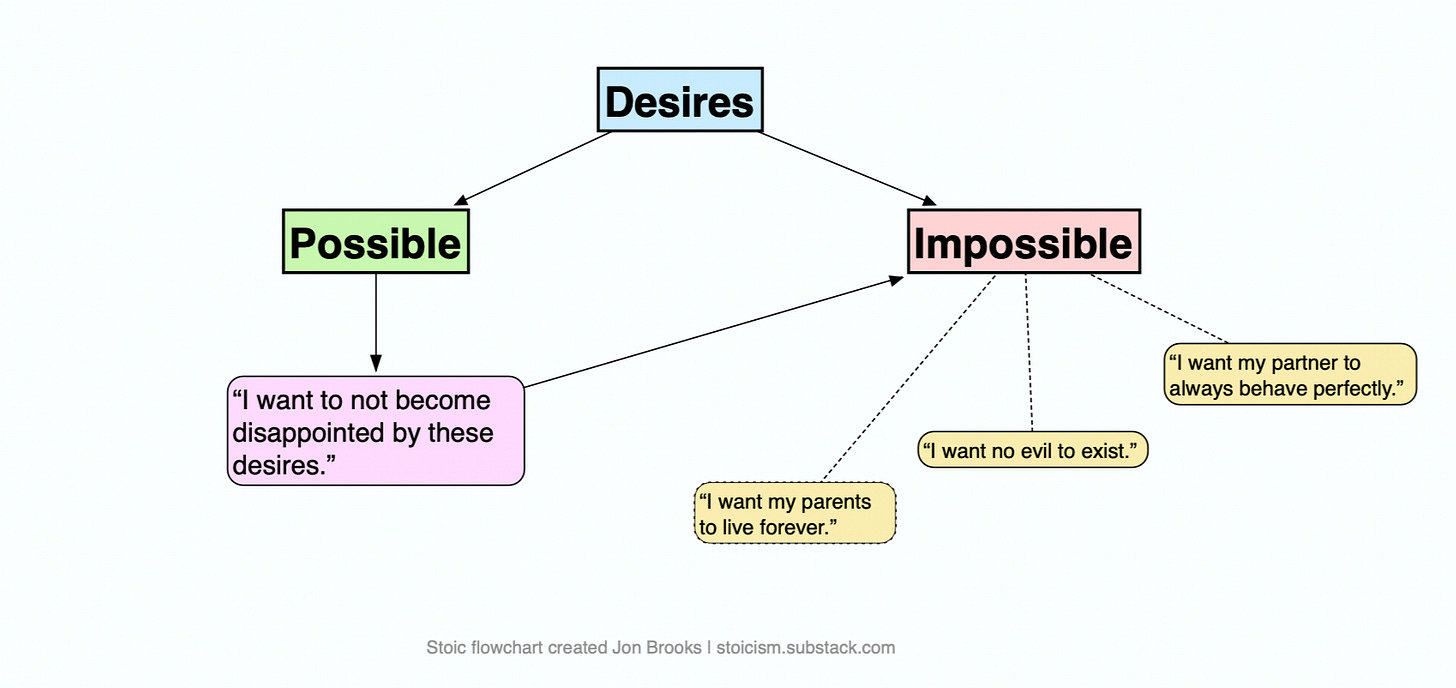
II/ Slave Desires
Remember: In life, we are always at the mercy of the thing or person who controls the outcome of the things we desire.
Sometimes, fortune controls the outcome. Other times a person does.
If you give away this authority to something external, you can never be free.
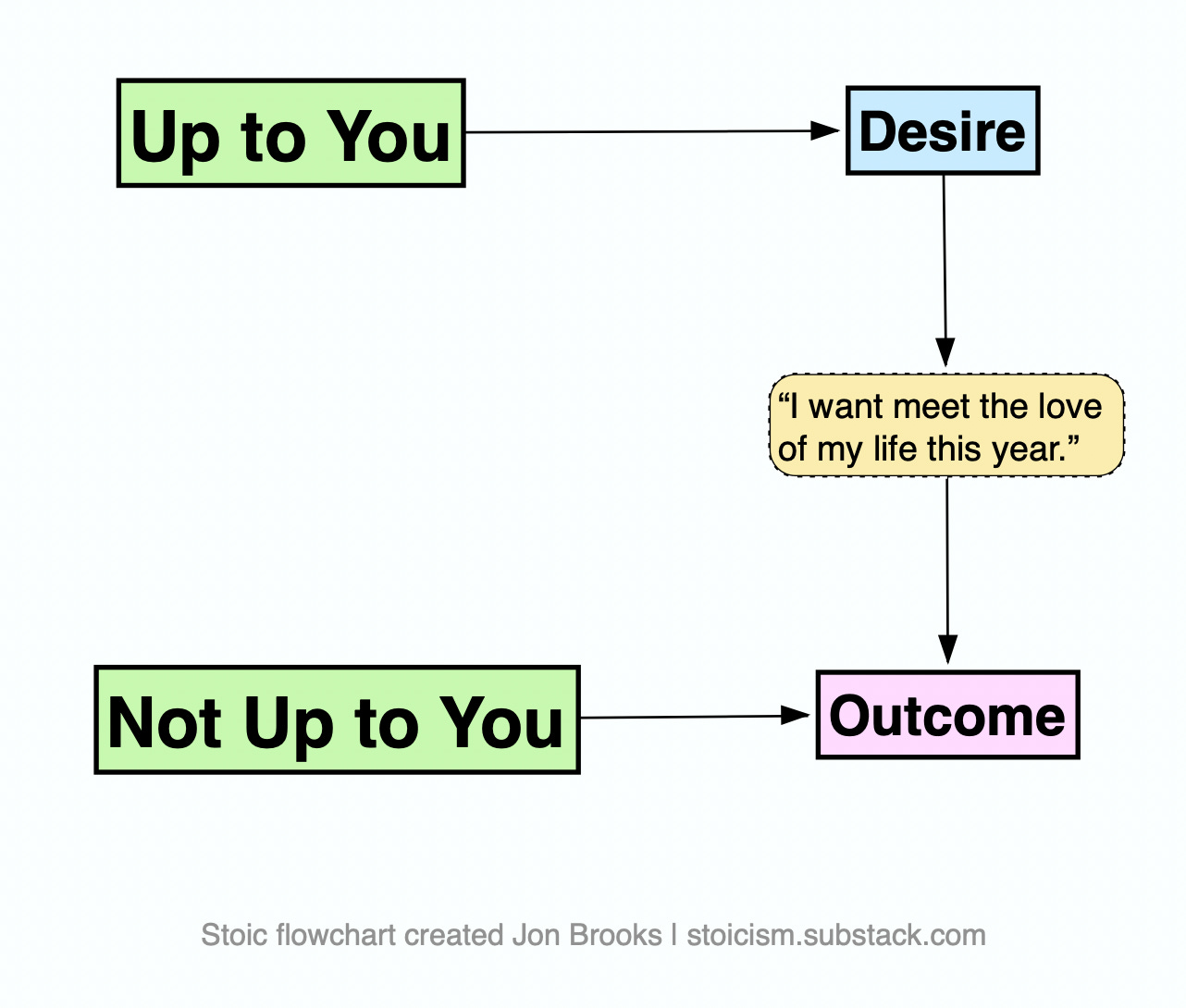
So what must you do?
Do not wish to have or avoid things that other people control. If you do, you are unknowingly becoming their slave.
If someone else controls the outcome of something you desire, alter your desire to this:
“I desire above all, to not be a slave. That desire is within my control.”
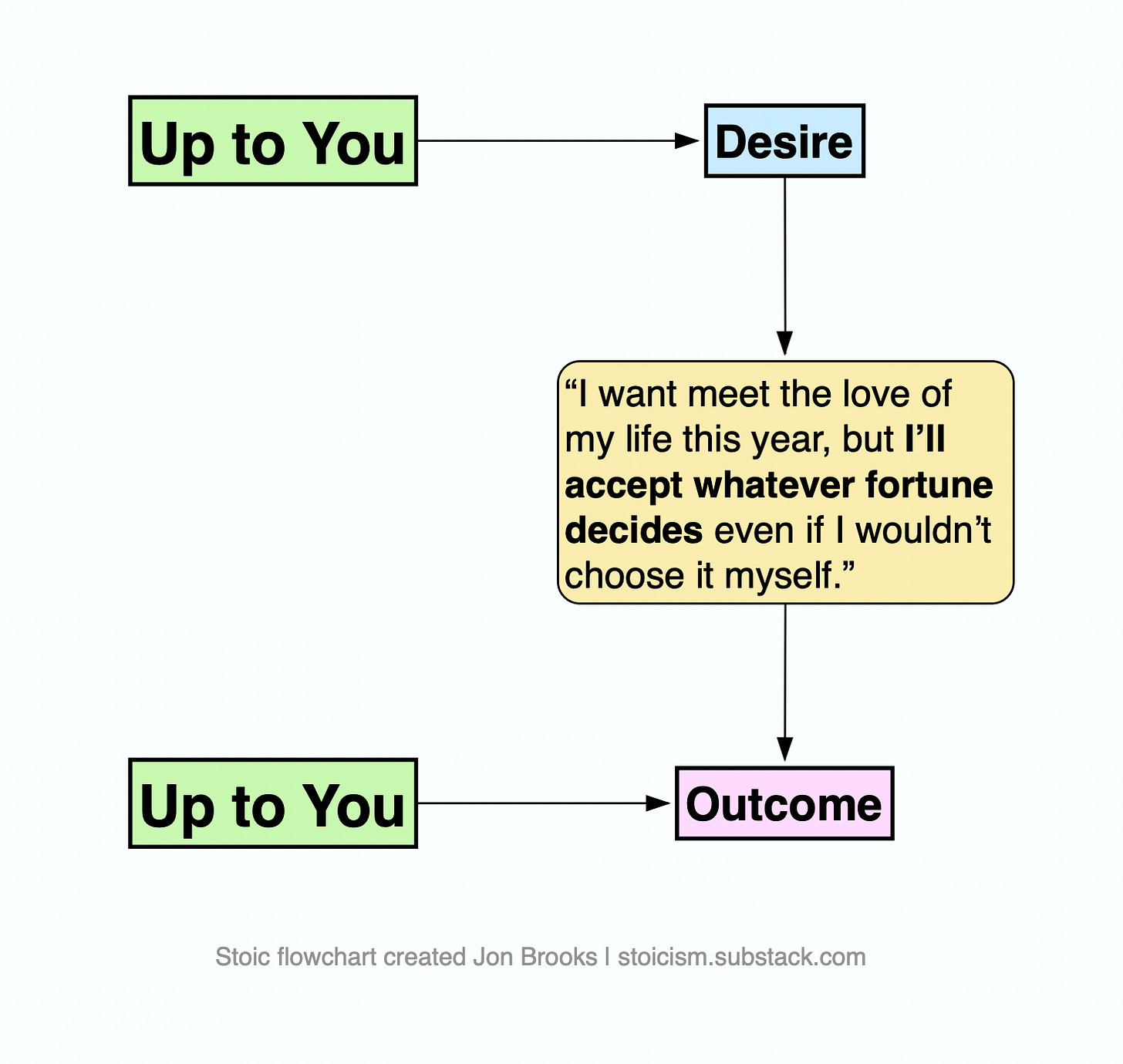
ENCHIRIDION CHAPTER FOURTEEN, EPICTETUS, TRANSLATION BY ROBERT DOBBIN:
[1] You are a fool to want your children, wife or friends to be immortal; it calls for powers beyond you, and gifts not yours to either own or give. It is equally naive to ask that your slave be honest; it amounts to asking that vice be not vice but something different.2 You can, however, avoid meeting with disappointment in your desires; focus on this, then, since it is in the scope of your capacities.
[2] We are at the mercy of whoever wields authority over the things we either desire or detest. If you would be free, then, do not wish to have, or avoid, things that other people control, because then you must serve as their slave.
